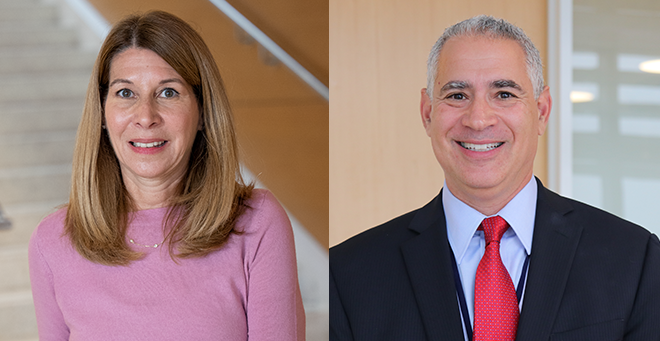
Over the next five years, a UMass Chan Medical School program will provide wraparound services for 250 people with opioid use disorder and mental health disorders.
UMass Chan will serve as the lead agency and evaluator of the program and will collaborate with Family Health Center of Worcester to improve behavioral health outcomes and access to medications for opioid use disorder. The program is funded through a five-year grant from the Substance Abuse and Mental Health Services Administration for $551,000 annually.
In Massachusetts, Worcester had the third highest rate of opioid-related overdose deaths in 2021, behind Boston and Springfield.
The goal of the grant is to provide wraparound support for people with co-occurring opioid use and mental health disorders receiving services at Family Health Center of Worcester, using the Maintaining Independence and Sobriety through Systems Integration, Outreach and Networking, or MISSION model.
The model combines three evidence-based practices: dual recovery therapy, an integrated group therapy approach for co-occurring disorders; peer support, a recovery approach delivered by people living in recovery; and critical time intervention, community treatment that connects clients with housing, employment, and other support resources.
David Smelson, PsyD, professor of medicine and director of the Center of Excellence in Addiction, and founder of the MISSION model, said there are 500 to 700 people who are opiate dependent receiving services from Family Health Center of Worcester.
“There are wraparound supports that exist within Worcester, but not necessarily multicomponent wraparound supports. MISSION provides more than just linkage to care. The same support staff treats people and links people to services. It’s a hybrid treatment and linkage to care,” Dr. Smelson said. “It’s delivered by case managers and peer support specialists, who are people in recovery, who have done well in recovery and they’re supporting people new to recovery. “
The grant will help deliver MISSION services to 50 individuals annually and will prioritize serving individuals who are Hispanic/Latino and Black/African American.
Jennifer Harter, PhD, senior project director for clinical research in the Department of Psychiatry and a developer of the MISSION model, will oversee the five-year program. She is principal investigator on the grant.
Dr. Harter, who previously worked with Family Health Center offering case consultation on another grant, said serving in the that role helped her better understand the vulnerabilities and needs of the patients at Family Health Center and prompted her to submit this new grant.
“With this grant, we’re going to be recruiting clients from two different programs: the outpatient addiction treatment program and the homelessness program, which also treats folks who have HIV and AIDS,” Harter said. “We’ve expanded from previous grants to recruit more people.”
According to Harter, recruitment of the first 50 individuals will start in early 2023.
“This grant is a little different from some of our other grants because we partnered directly with Family Health Center. It’s a true partnership in which Family Health Center will receive funds to hire the staff to deliver the services,” Smelson said. “And because the staff will be embedded within the Family Health Center, we will recruit directly through the Family Health Center.”
UMass Chan News related stories:
New $12.3 million NIMH grant explores MISSION recovery model for opioid addiction and mental illness
Study shows MISSION wraparound services boost outcomes for drug court clients